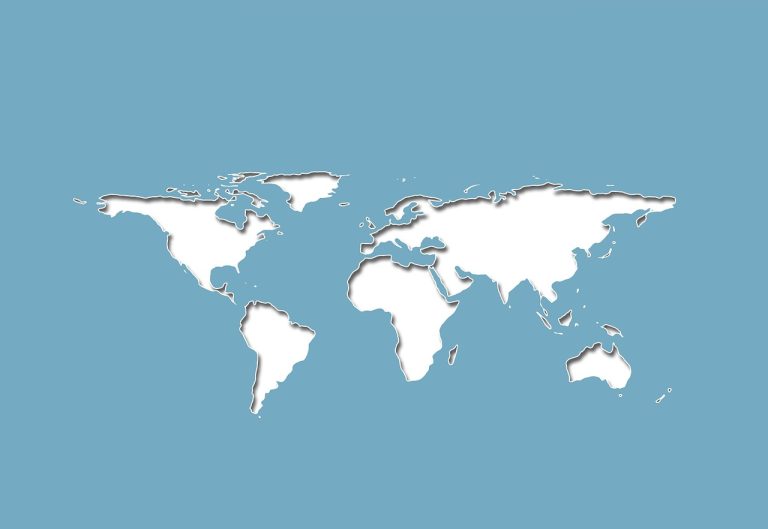
Scrutinizing the Impact of Duterte’s Administration on the Philippine’s Judicial System
The administration of President Rodrigo Duterte has been both controversial and transformative, particularly concerning the Philippine judicial system. Duterte, who served as the 16th president of the Philippines from 2016 to 2022, enacted policies and strategies that left indelible marks on the country’s legal landscape. This blog post delves into the various impacts of Duterte’s administration on the judicial system, examining key changes, criticisms, and long-term implications.
Introduction to Duterte’s Administration
Rodrigo Duterte, known for his populist and often controversial rhetoric, rose to power with a promise to eradicate crime and corruption. His administration was characterized by a tough stance on drugs, which significantly shaped his policies and governance style. The judicial system, being a critical pillar of governance, experienced notable shifts under his leadership.
The War on Drugs and Its Judicial Implications
One of the most significant aspects of Duterte’s presidency was his war on drugs. This campaign aimed at eliminating illegal drug activities through aggressive law enforcement measures. However, it led to a surge in extrajudicial killings, raising concerns about human rights violations.
The judiciary faced immense pressure as the number of drug-related cases skyrocketed. Courts were inundated with cases, leading to backlogs and delays. Critics argue that the judiciary’s ability to provide fair and timely justice was compromised, as many detainees languished in jails without trial.
Judicial Independence Under Threat

During Duterte’s term, questions arose about the independence of the judiciary. The removal of Chief Justice Maria Lourdes Sereno in 2018 was a pivotal moment that sparked debates about judicial autonomy. Sereno’s ouster, which many perceived as politically motivated, was seen as a move to consolidate power and silence dissent.
This event raised concerns about the executive branch’s influence over the judiciary. The perception of a compromised judicial system can have long-term effects, undermining public trust in legal institutions and affecting the rule of law in the country.
Reforms and Initiatives
Despite the controversies, Duterte’s administration introduced several reforms intended to improve the judicial system. Efforts were made to increase the efficiency of courts and reduce case backlogs. For instance, the Enhanced Justice on Wheels program aimed to bring court services closer to marginalized communities, improving access to justice.
Furthermore, the administration supported the modernization of court facilities and the adoption of technology to streamline case management. These initiatives, while beneficial, were often overshadowed by the broader controversies surrounding the administration’s judicial interventions.
Human Rights Concerns
The human rights record of Duterte’s administration has been a focal point of international criticism. The aggressive tactics employed in the war on drugs led to numerous human rights violations, including unlawful killings and arbitrary arrests. These actions prompted calls from global organizations for investigations and accountability.

The judiciary, as a custodian of justice, was expected to uphold human rights standards. However, the overwhelming number of cases and perceived political influence challenged its capacity to function effectively. This situation highlighted the need for a robust and independent judicial system capable of resisting external pressures.
Impact on Legal Precedents
Duterte’s administration also influenced legal precedents in the Philippines. The rulings on cases related to the drug war and other political matters set significant legal benchmarks. These decisions will likely shape the interpretation and application of laws in future cases, impacting the country’s legal framework.
For instance, the Supreme Court’s stance on the legality of certain executive actions under Duterte’s leadership may serve as a reference for future administrations. The long-term implications of these precedents underscore the importance of a balanced and impartial judiciary.
International Relations and Judicial Perception
Duterte’s governance style and the judiciary’s response had implications for the Philippines’ international relations. The global community closely monitored the country’s human rights record, affecting diplomatic ties and foreign aid. The International Criminal Court (ICC) even launched a preliminary examination into the drug war, further scrutinizing the administration’s actions.
This international scrutiny highlighted the importance of an independent judiciary in maintaining a positive global image. A strong judicial system can safeguard a nation’s reputation by ensuring adherence to international legal standards.
Conclusion: The Path Forward

The impact of Duterte’s administration on the Philippine judicial system is multifaceted, encompassing both challenges and opportunities. While the administration’s policies brought significant transformations, they also exposed vulnerabilities within the legal framework. Moving forward, the Philippines must prioritize strengthening judicial independence and ensuring access to justice for all citizens.
Reforms should focus on bolstering the judiciary’s capacity to handle complex cases, reducing backlogs, and safeguarding human rights. By addressing these issues, the Philippines can build a more resilient and equitable judicial system that upholds the rule of law and protects the rights of its citizens.
As the nation reflects on Duterte’s legacy, it is crucial to learn from the past and work towards a future where justice prevails. The judiciary must remain a steadfast pillar of democracy, free from undue influence and committed to upholding the principles enshrined in the Philippine Constitution.
Ultimately, the impact of Duterte’s administration on the judicial system serves as a reminder of the delicate balance between governance and justice. By fostering transparency, accountability, and independence, the Philippines can pave the way for a legal system that truly serves the people.
Challenges Ahead for the Philippine Judicial System
The judicial system in the Philippines faces numerous challenges that require immediate attention and strategic intervention. These challenges include systemic inefficiencies, resource constraints, and the need for comprehensive legal reforms. Addressing these issues is essential for ensuring that the judiciary can effectively execute its role in upholding justice and the rule of law.
One of the pressing issues is the backlog of cases that continues to burden the courts. The sheer volume of pending cases hampers the delivery of timely justice, adversely affecting public confidence in the legal system. To combat this, it is crucial to implement measures that streamline case processing and enhance the efficiency of court operations.

Technological Integration in Judicial Processes
Integrating technology within the judicial system presents a significant opportunity to improve efficiency and accessibility. The implementation of electronic case management systems and virtual court hearings can revolutionize how justice is administered in the Philippines.
During the COVID-19 pandemic, the judiciary had to adapt quickly to ensure continuity of services. This period highlighted the potential of technology in justice administration. Transitioning to digital platforms can reduce delays and make legal processes more transparent and accessible to the public.
Public Perception and Trust
Public trust in the judiciary is a cornerstone of a functioning democracy. The events during Duterte’s administration have, at times, shaken this trust. Rebuilding confidence requires concerted efforts to demonstrate transparency, impartiality, and accountability in judicial proceedings.
Engaging with civil society organizations and fostering community outreach programs can help bridge the gap between the judiciary and the public. Educating citizens about their legal rights and the judicial process is also vital in nurturing an informed and engaged citizenry.
Strengthening Judicial Training and Capacity Building
Enhancing the capacity of the judiciary involves investing in the training and development of judges, prosecutors, and court personnel. Continuous professional development ensures that judicial actors are equipped with the latest legal knowledge and skills, enabling them to effectively handle complex cases.

Moreover, initiatives that promote ethical standards and integrity among legal professionals are essential for maintaining the credibility of the judiciary. Establishing a culture of excellence and accountability will contribute to a more robust and reliable judicial system.
International Cooperation and Best Practices
Learning from international best practices can provide valuable insights into improving the Philippine judicial system. Collaborating with other countries and participating in global legal forums can facilitate the exchange of knowledge and experiences.
Such cooperation can also aid in aligning local judicial practices with international legal standards, ensuring that the Philippines meets its obligations under various international treaties and agreements. By embracing global perspectives, the judiciary can enhance its effectiveness and contribute positively to international discourse on justice and human rights.
Conclusion: Charting a New Course
The impact of Duterte’s administration on the judicial system has been profound, presenting both challenges and opportunities for reform. As the Philippines moves forward, it is imperative to address the systemic issues that have hindered judicial performance and public trust.
By embracing technological advancements, enhancing judicial capacity, and fostering international cooperation, the Philippines can build a more resilient and equitable legal system. These efforts, combined with a commitment to upholding human rights and the rule of law, will ensure that justice is accessible to all citizens.
The journey toward judicial reform is complex, requiring collaboration and dedication from all stakeholders. As the nation reflects on the lessons of the past, it must seize the opportunity to chart a new course for the future, one where the judiciary stands as an independent and impartial guardian of justice.






